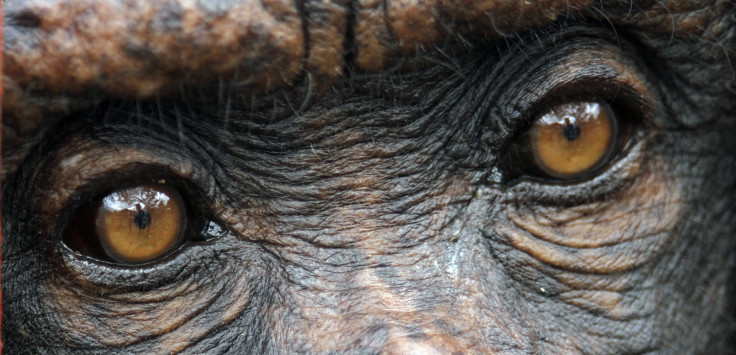All Chimpanzees In US, Including Captive Ones, Are Now Endangered

All chimpanzees in the U.S. will now be considered endangered by the government under the Endangered Species Act, the U.S. Fish and Wildlife Service announced, in a statement released Friday. The move, which eliminates the distinction between the legal status of wild chimps and their captive counterparts, will ensure that the use of these animals for the purpose of biomedical research, and their import and export, require special permits from the federal agency.
“Extending captive chimpanzees the protections afforded their endangered cousins in the wild will ensure humane treatment and restrict commercial activities under the Endangered Species Act,” U.S. Fish and Wildlife Service Director Dan Ashe said in the statement. “The decision responds to growing threats to the species and aligns the chimpanzee’s status with existing legal requirements. Meanwhile, we will continue to work with range states to ensure the continued survival and recovery of chimpanzees in the wild.”
Currently, of the 1,742 captive chimpanzees in the U.S., 730 are in the custody of biomedical laboratories, according to an estimate by Lincoln Park Zoo’s Project ChimpCARE. The rest are believed to be held in zoos, sanctuaries, breeders and facilities that train chimpanzees to be used in the entertainment industry. While wild chimpanzees were listed as an endangered species under the U.S. Endangered Species Act in 1990, captive chimpanzees were, until now, designated as a threatened species.
“At the time we thought it was important to encourage breeding of captive chimps to expand their numbers,” Ashe reportedly said at a press conference on Friday. “But we expanded a culture of treating these animals as a commodity for research, sale, import and export, and entertainment.”
In 2010, the agency received a petition from a coalition of organizations, including the Arlington, Virginia-headquartered Jane Goodall Institute, to list all chimpanzees as endangered.
“I feel very relieved that all chimpanzees, whether they are captive or wild, will be listed as endangered,” famed primatologist Jane Goodall, director of the institute, said in a statement after the announcement. “This change shows that many people are finally beginning to understand that it is not appropriate to subject our closest relatives to disrespectful, stressful or harmful procedures, whether as pets, in advertising or other forms of entertainment, or medical research.”
According to the institute, there are currently an estimated 172,000 to 300,000 chimpanzees remaining in the wild worldwide -- down from nearly a million at the turn of the 20th century.
The new regulations, which would come into effect from Sept. 14, do not restrict private ownership of chimpanzees, nor do they require permits to be sought for the use of chimpanzees in the entertainment industry. Permits for the scientific use of chimpanzees, however, would only be given if it benefits the survival of wild chimpanzees.
© Copyright IBTimes 2025. All rights reserved.






















